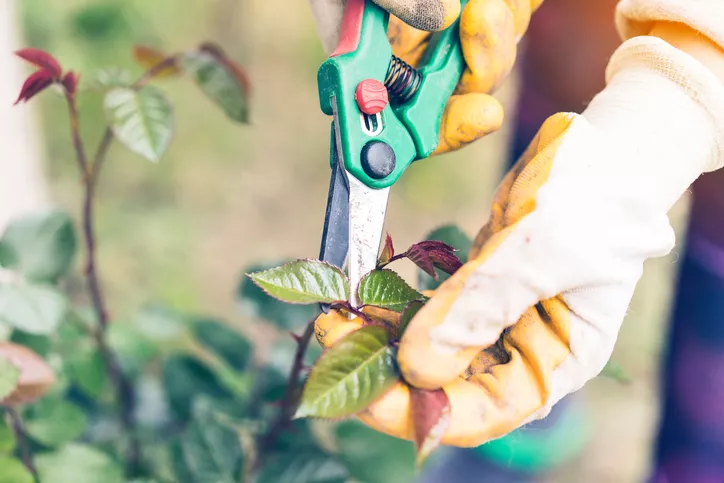Do you have a particularly beautiful variety of rose in your garden, but you don't know what it's called and would you like to breed it? Or are you looking with covetous eyes at the magnificent splendor of roses in the neighbor's garden and would like to have these wonderful specimens too? Then quickly obtain suitable planting material from the mother plant and set about growing those flowers.
 Hybrid teas can be propagated from cuttings
Hybrid teas can be propagated from cuttings
Propagating hybrid tea roses with cuttings
The simplest way of breeding is to propagate cuttings, which also works with non-ungrafted hybrid tea roses - after all, the genetic information for flowers and fragrance is not in the roots, but in the shoots. Shortly after the flowering period, cut off a shoot with a faded flower and root it, then you have already created a clone of the mother plant. There are various methods for rooting, because rose cuttings can be rooted both in a glass of water and in the ground. Propagation via cuttings often works very well.
Can hybrid teas be propagated by seeds?
Of course, if you want to propagate roses from seeds, you first need rose hips. Not all rose species and varieties form these fruits, which is why seed propagation is not always possible. However, even if your rose gets rose hips, that doesn't mean that the resulting offspring will look exactly like the mother plant. In contrast to cuttings, mutations can occur in seeds or break through the heritage of even distant ancestors of the rose. Seedlings are not varietal; unless it is a wild form. But even this can suddenly look different from the parent rose, namely when the flowers have been pollinated with pollen from a different variety or species. In addition, wild roses usually grow from rose seeds, not hybrid teas - these would therefore have to be obtained by vegetative propagation.
Refining roses yourself
Of course, you can also graft roses yourself and breed them. Refining is actually not that difficult if you know a few techniques and work cleanly and with sensible (and sharp!) tools. Roses are mostly grafted, i. H. the breeder transfers a rose eye to a mostly wild rootstock. However, the plants can also be grafted, in which case a whole shoot is transferred.
tips
Caution: Many rose varieties have plant variety protection, i. H. you can't just breed them or multiply them yourself and then pass them on or even sell them. This makes you liable to prosecution (keyword copyright), since the rose breeders rightly want their years of effort to be rewarded.